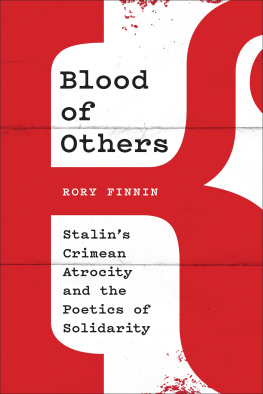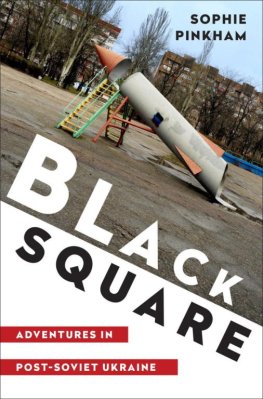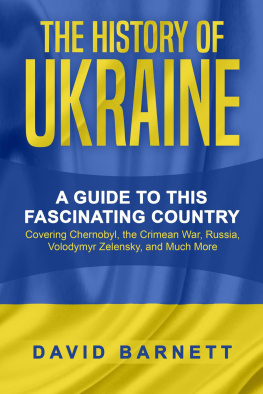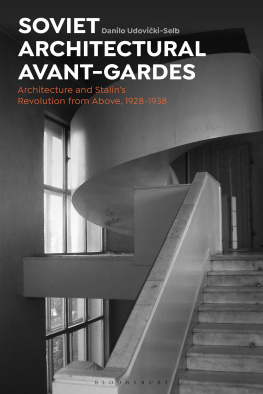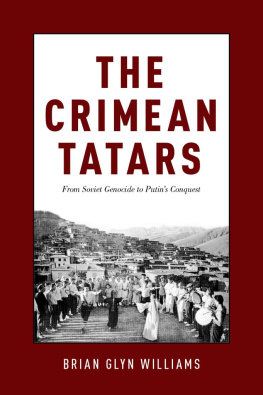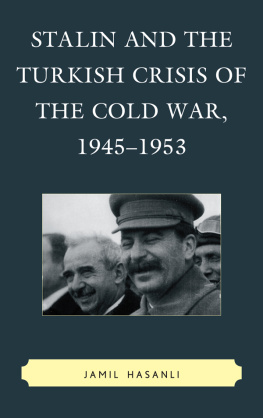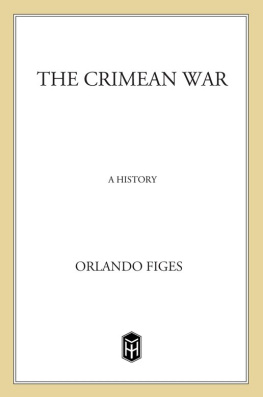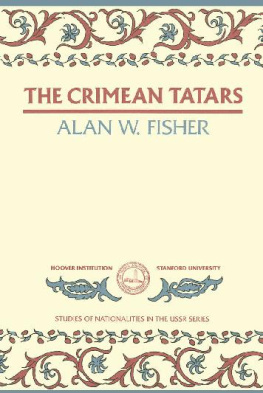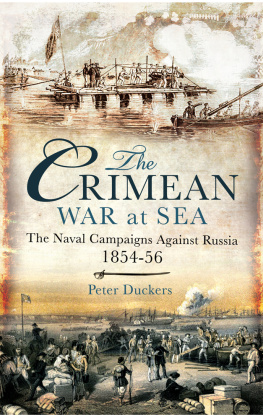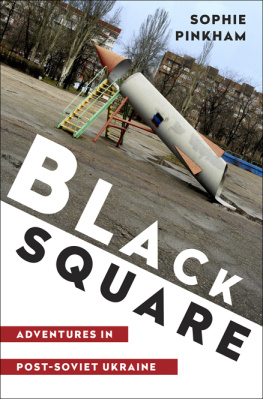Praise for Blood of Others:
In his introduction to Blood of Others, Rory Finnin writes that he aims to realign our intellectual horizons, to refocus our attention on the cultural crossroads that is the Black Sea. He succeeds: using Russian, Ukrainian, Tatar, and Turkish sources, and with the tragic history of the Crimean Tatars as his focus, he shows how writers in the region influenced and enhanced one anothers work. A brilliant book by the UKs most important scholar of Ukraine.
Anne Applebaum, Staff Writer, The Atlantic, Senior Fellow, Johns Hopkins School of Advanced International Studies, and Pulitzer Prize-winning author of Gulag: A History and Red Famine: Stalins War on Ukraine
Rory Finnin has written the definitive account of cultural responses to a stillhidden atrocity: the deportation of the Crimean Tatars. Through new research and sensitive interpretations, Blood of Others shows how the Crimean Tatar experience is deeply connected to global themes of colonialism, dispossession, and survival. It is a record of cultural resilience against astounding odds and a detailed portrait of art and memory in action.
Charles King, Professor of International Affairs and Government, Georgetown University, and author of The Black Sea: A History
Blood of Others is an astonishing account of the entanglement of Russian, Crimean Tatar, Turkish, and Ukrainian cultural life with the political and social history of the Crimean Tatars. Rory Finnins work is an impressive navigation among the languages and religious confessions of the Black Sea region, cultural works from poetry to film, centuries of imperial domination, and methodological toolkits, revealing the historical effects and ethical burdens of cultural expression in a fraught, multiply colonized territory.
Kevin M.F. Platt, Edmund J. and Louise W. Kahn Term Professor in the Humanities, University of Pennsylvania, and editor of Global Russian Cultures
In this thoughtful, nuanced study of the literature of Crimea, Rory Finnin exposes the seams connecting the nations and empires that have coexisted in the Black Sea. Blood of Others fills a significant lacuna in English-language scholarship on Eurasian history and literature.
Amelia Glaser, Associate Professor of Literature and Endowed Chair in Judaic Studies, University of California San Diego, and author of Jews and Ukrainians in Russias Literary Borderlands: From the Shtetl Fair to the Petersburg Bookshop
The deportation of the Crimean Tatars from their ancestral homeland in 1944 was not only one of the crimes of Stalinism. It was also a triumph of settler colonialism that opened the door to the Russian annexation of Crimea in 2014. In Blood of Others Rory Finnin shows the power of literary texts to forge ties of solidarity with an oppressed people across national, ethnic, and linguistic lines, ties of solidarity that would not exist otherwise. It is a book about a tragedy of the past that inspires optimism about the future, and an essential read for anyone interested in the literature, history, and politics of the Black Sea region.
Serhii Plokhy, Mykhailo S. Hrushevskyi Professor of Ukrainian History, Harvard University, and author of The Frontline: Essays on Ukraines Past and Present
Blood of Others
Stalins Crimean Atrocity and the Poetics of Solidarity
RORY FINNIN
UNIVERSITY OF TORONTO PRESS
Toronto Buffalo London
University of Toronto Press 2022
Toronto Buffalo London
utorontopress.com
Printed in the U.S.A.
ISBN 978-1-4875-0781-7 (cloth)ISBN 978-1-4875-3701-2 (EPUB)
ISBN 978-1-4875-3700-5 (PDF)
___________________________________________________________________________
Library and Archives Canada Cataloguing in Publication
Title: Blood of others : Stalins Crimean atrocity and the poetics of solidarity / Rory Finnin.
Names: Finnin, Rory, author.
Description: Includes bibliographical references and index.
Identifiers: Canadiana (print) 20210375701 | Canadiana (ebook) 20210387823 | ISBN 9781487507817 (hardcover) | ISBN 9781487537012 (EPUB) | ISBN 9781487537005 (PDF)
Subjects: LCSH: Ukrainian literature 20th century History and criticism. | LCSH: Crimea (Ukraine) In literature. | LCSH: Ethnic relations in literature. | LCSH: Literature and society Ukraine Crimea History 20th century. | LCSH: Crimea (Ukraine) Intellectual life 20th century. | LCSH: Crimea (Ukraine) Ethnic relations History 20th century. | LCSH: Tatars Ukraine Crimea Social conditions 20th century. | LCSH: Crimea (Ukraine) History 20th century. | LCSH: Tatars Ukraine Crimea History 20th century.
Classification: LCC PG3916.2.F56 2022 | DDC 891.7/909800904 dc23
___________________________________________________________________________
The Ethics of Memory by Avishai Margalit (Cambridge, MA: Harvard University Press), copyright 2002 by the President and Fellows of Harvard College. Used by permission. All rights reserved.
We wish to acknowledge the land on which the University of Toronto Press operates. This land is the traditional territory of the Wendat, the Anishnaabeg, the Haudenosaunee, the Mtis, and the Mississaugas of the Credit First Nation.
University of Toronto Press acknowledges the financial support of the Government of Canada, the Canada Council for the Arts, and the Ontario Arts Council, an agency of the Government of Ontario, for its publishing activities.

To Anne and Shane
Solidarity wavers when the memory of a strong feeling of solidarity fades away.
Avishai Margalit
Note on Translation, Transliteration, and Terminology
With some exceptions, I quote from Crimean Tatar, Russian, Turkish, and Ukrainian documentary or critical sources by giving an English translation only. Quotations from imaginative literature, due to their importance, are often given in the original language with a simple English translation. All translations are my own, unless indicated otherwise.
For quotations from Russian and Ukrainian texts, I follow the Library of Congress transliteration system, with some modifications. References in the notes and the bibliography hold to the LOC system, but in the body of the text I dispense with the apostrophe that marks the soft sign, render the yi and ii endings of proper names of individuals as y, and replace the initial iotated vowels ia-, iu-, and ie- with ya-, yu-, and ye-. As for Turkish texts, the most distinctive characters have the following orthographical and phonological features:
c j as in jam
ch as in church
silent, lengthens preceding vowel
e as in open
oeu in French oeuvre, or German
sh as in shape
u in French tu, or German
The modern Crimean Tatar language has two (often competing) orthographical systems: Cyrillic and Latin. For quotations from Cyrillic-based Crimean Tatarlanguage texts, I convert to the Latin-based system, which largely corresponds to Turkish orthography with these exceptions:
a, with the preceding consonant palatalized
voiced velar fricative []

